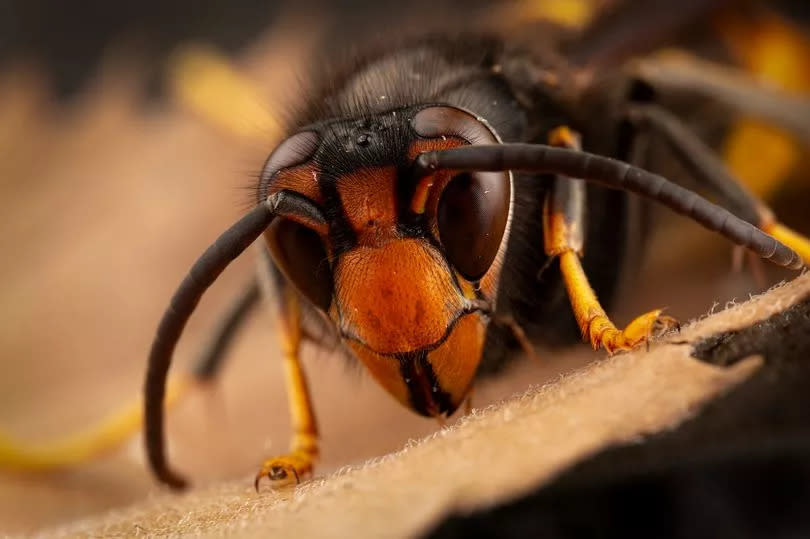Asian hornets sighted in UK as public urged to act

Honeybees are under threat from an invasive species of hornet and people are being told to report any sightings of the invasive hornet. The Asian hornet was been spotted all over the UK last summer but some experts believe the insect has survived the UK's winter meaning it is very likely the bee-killing insect will be here for good.
Asian hornets (vespa velutina) dismember and eat bees. They have thrived in France where they have caused concern because of the number of insects killed. They sit outside honeybee hives and capture bees as they enter and exit then chop up the smaller insects and feed their thoraxes to their young.
Just one Asian hornet can hunt down and eat 30 to 50 honeybees in a day, according to the British Beekeepers Association. Asian hornet numbers have skyrocketed in the UK with 57 sightings in 2023 – more than double the previous seven years combined.
READ MORE: Welsh Government finally confirms plan for proposed school holiday changes
READ MORE: Woman bit child at Welsh music festival
The insects can be identified by their very dark body, wide orange stripe on the fourth abdomen section, and yellow leg ends. Despite the Department for Environment, Food, and Rural Affairs (Defra) saying earlier this month that there was no concrete proof the hornets had stayed here over winter testing from the government-backed National Bee Unit has shown that three queen hornets caught at Four Oaks in East Sussex are the offspring of a nest destroyed in nearby Rye in November 2023. That implies that the hornets are here and breeding in the UK.
Defra’s chief plant and bee health officer Professor Nicola Spence said last week: "By ensuring we are alerted to possible sightings as early as possible the public can help us take swift and effective action to stamp out the threat posed by Asian hornets. While the Asian hornet poses no greater risk to human health than other wasps or hornets they can damage honeybee colonies and harm other pollinators. Please continue to be vigilant for any Asian hornets and if you think you’ve spotted one report your sighting through the Asian hornet app or online."
According the Wildlife Trust the hornet can be accidentally imported through goods such as timber, soil, fruit, potted plants, and cut flowers though it is most likely to found in the southern parts of England as it cannot survive the colder climates in the north of the UK. Its active months are between April and November though they're most active in August and September.
Dr Gavin Broad from the Natural History Museum gave tips on spotting them. "They're much darker than any British hornets and social wasps. They look almost black," he said. "The abdomen has really dark patches covering most of the first half and then it gets a bit yellow – it's quite a distinctive colour pattern."
Asian hornet queens reach up to three centimetres in length and workers around 2.5cm. Anyone who spots a hornet or nest is advised not to disturb it but is asked to report it via an app or reporting system via the GB non-native species secretariat.

 Yahoo News
Yahoo News 
